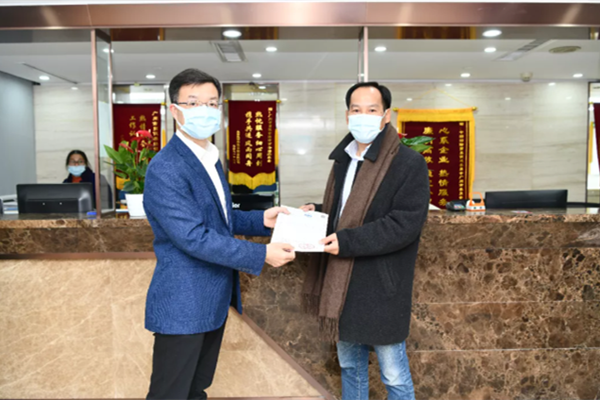While people were celebrating the start of 2022, the officers of China Council for the Promotion of International Trade Guangzhou Committee (CCPIT Guangzhou) were still busy at the certification center at midnight. They were working to issue the first batch of certificate of origin under the Regional Comprehensive Economic Partnership agreement (RCEP) which just took effect on January 1.

The first company that achieved the certificate of origin in Guangzhou is a Nansha-based chemical manufacturer named Sartomer (Guangzhou) Chemicals Limited.
“Our company produces acrylate and mainly exports to Japan with an annual value of 12.87 million USD. With the certificate of origin, we are able to pay 2.29 million RMB less on import-export taxes every year,” said the representative of Sartomer.
IRIS Group (Guangzhou) is a household product manufacturer that obtained certificate of origin. The company representative said they could pay 1.9 million RMB less every year when they export to the Japanese market, and reduce 580 thousand RMB taxes when importing raw materials from RCEP member states.
According to the CCPIT, the RCEP will benefit both enterprises and customers. They took China and Japan as an example, saying, this is the first time for the two countries to establish bilateral free-trade relations. 25 percent of Japanese exports to China and 57 percent of Chinese exports to Japan will become tariff-free immediately after the implementation of RCEP. It’s expected that 86 percent of Japanese products and 88 percent of Chinese products will eventually enjoy zero tariffs to each other.
Based on the CCPIT statistics, the import and export volume between Guangzhou and RCEP member states has taken up one third of the city’s total in recent years while ASEAN has become the biggest trading partner with the city. The trade volume between Guangzhou and RCEP members increased 8.5 percent to 334.58 billion RMB from January to November 2021.
“The CCPIT joins hands with Nansha Free Trade Zone to promote the advantageous policies of the RCEP, help enterprises to formulate strategies and eventually to seize new opportunities amid the challenges brought by growing international shipping fees,” said Yang Yong, Director of CCPIT Guangzhou.
Being a Free Trade Zone, Nansha’s foreign trade business has been rapidly growing. Its foreign trade volume increased 15.9 percent and accounted for one quarter of the city’s total by the end of 2021. The district’s main commodities for export are mechanical and electronic products, and it saw the export volume of ship & auto parts and containers surged rapidly recently.
According to the CCPIT, the online application system (http://qiye.ccpiteco.net) for the certificate of origin and back-to-back certificate of origin under the RCEP was launched on January 1, 2022. The service is free of charge. Companies will enjoy tax preferences with these certificates under the RCEP agreement when they export products to RCEP member countries.
The CCPIT Guangzhou also launched a 24-hour hotline for related consultation: 020-87613722/87305324.
Author: Jasmine
Editor: Steven, Jerry
















